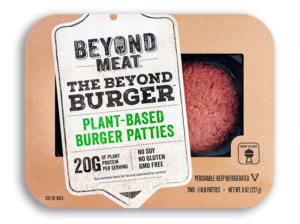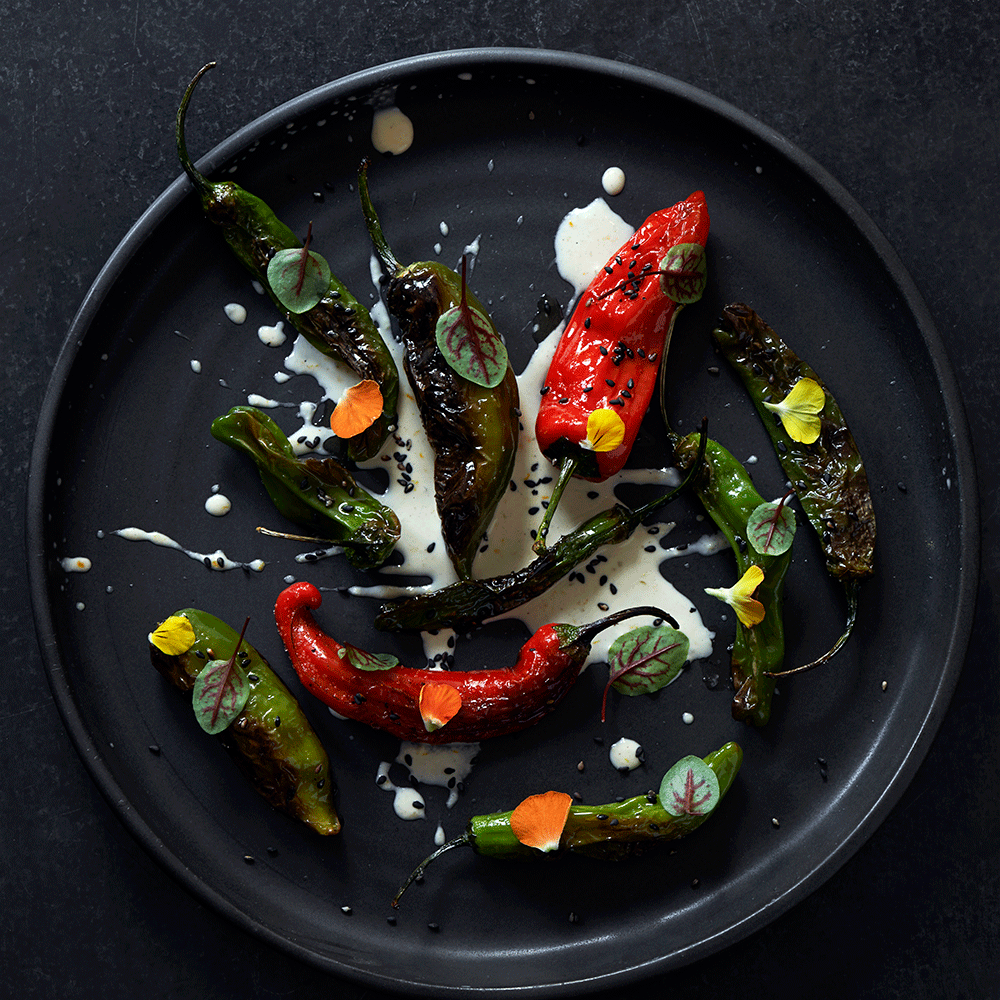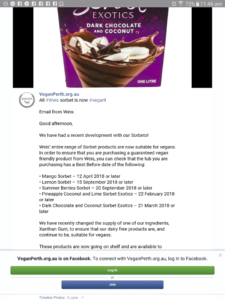Enter The Vegetarian Resource Group Video Contest: Deadline July 15, 2018

Create and submit a video relating what you want to tell others about vegetarianism and/or veganism.
Some possible topics: food, nutrition, your feelings about veganism and/or vegetarianism, water usage and vegetarianism, veganism and animal rights, or other vegetarian topics which appeal to you. Humor and feelings are appreciated. All videos should be positive, not be critical of anyone, and not include any footage of animal cruelty. You may submit a video you have already made.
Aspects of judging include accuracy and judges wanting to share the video with others. Entrants give permission to The Vegetarian Resource Group to post and share the video, to link to and from the video, and share the video with the media. Deadline to enter this year is July 15, 2018.
Details on the contest can be found here:
VRG Video Contest
JOIN US AT THE VEGETARIAN RESOURCE GROUP VEGAN DINNER IN WASHINGTON, DC Sunday, October 21, 2018 at 6pm

The Vegetarian Resource Group will host a vegan dinner at BUSBOYS AND POETS in Washington, DC (About three blocks from the DC Convention Center) on Sunday, October 21, 2018 during the annual meeting of The Academy of Nutrition and Dietetics. Meet VRG advisors Reed Mangels PhD RD, Catherine Conway MS RD, Mark Rifkin, MS RD, Debra Wasserman, Charles Stahler, and vegetarian dietitians from around the country. All are welcome.
MENU
APPETIZERS:
BBQ Vegan Chicken Bites
Crispy Brussels Sprouts (Brussels sprouts with shallots, agave vinaigrette)
Tabbouleh (Quinoa, parsley, tomatoes, green onions, lemon juice)
ENTRÉE: Beans and Wild Rice (black beans, fresh guacamole, pico de gallo)
DESSERT: Vegan Chocolate Chip Cookie
Fountain Drinks and Iced Tea included
MUST PAY AND RESERVE IN ADVANCE: Send $35 per person (includes tax and tip) with names to The Vegetarian Resource Group, P.O. Box 1463, Baltimore, MD 21203.
Call (410) 366-8343. Or pay at www.vrg.org/donate and write DC Dietitian Dinner in the Comments.
NAME:
# Attending X $35/person = $
NAMES OF ATTENDEES:
Address:
City/State/Zip:
Email:
Phone:
Donation towards professional outreach: $
Total enclosed: $
GUIDE TO EATING AT SPORTS VENUES

All MLB parks are included in the guide, which begins with 50+ venue pages. Listings currently include NCAA Division I venues, professional sports venues, and amphitheaters. (They’ll be adding more venue categories in the future.) Visit: https://www.veggiehappy.com
Upton’s Breakroom in Chicago, Illinois
Despite Upton’s Breakroom’s reputation as an iconic vegan staple in an up-and-coming Chicago neighborhood, you would never guess this from its humble appearance. In fact, I accidentally drove past it as I searched for some large, trendy bistro set up in an abandoned brick warehouse (in my experience, most trendy Chicago restaurants look like this).
Upton’s Breakroom is a small, white-walled cafe nestled into the corner of Chicago’s Ukrainian Village. While the exterior appears fairly normal, what most people may not notice is the large Upton’s Naturals seitan factory behind the restaurant – the company produces popular meat alternatives found in grocery stores such as barbeque jackfruit, Italian seitan, and bacon mac and cheese. The benefit of attaching a restaurant to the factory is that dishes are created to best utilize the texture and flavor of Upton’s Naturals products, and it also serves as inspiration for the customers to recreate their favorite menu items at home.
Upton’s Breakroom serves al pastor-style jackfruit tacos, Bahn Mi sandwiches, Italian beef subs, and bacon seitan, all of which is possible for anyone to make using Upton’s products. Overcome with the amount of delicious options, I ordered the bacon mac and cheese, bahn mi, Korean BBQ tacos, and vanilla soft serve ice cream – that’s right, they have vegan soft serve! I brought the food home with me to share with my family, and we immediately understood why Upton’s has become such a Chicago staple. Everything we ate was flavorful, interesting, and truly inspired. I also loved knowing that I could easily recreate the mac and cheese by simply stopping at my local grocery store and finding the product in the vegan section.
Overall, Upton’s is a fantastic place to stop by for a quick lunch or hearty dinner any time of the year. Their soft serve flavors change throughout the summer, just in case you want something a little more exciting than vanilla (lucky for me, it’s my favorite flavor). The service is quick and efficient, and you can take your food to go or dine in if tables are available. The prices are also quite reasonable, considering the restaurant’s popularity, location, and quality.
To find vegan and vegetarian restaurants in your area, check out The Vegetarian Resource Group Restaurant Guide at VRG Online Veggie Restaurant Guide
FOOD INGREDIENT INFO: HYDROXYPROPYL METHYLCELLULOSE
By Jeanne Yacoubou, MS
Alternative names: HPMC, hypromellose
Commercial source: combined plant (wood or cotton), mineral & synthetic (often referred to as “semisynthetic”)
Used in: baked goods, sauce mixes, salad dressings, pharmaceuticals, dietary supplements, personal care products
Used for: thickening, stabilizing, retaining moisture, emulsifying, binding
Description: Derived from wood or cotton and mineral-based chemicals such as calcium bicarbonate along with petrochemicals, there are different types of HPMC depending on the nature & quantity of the petrochemical parts used. HPMCs are becoming popular in foods as alternatives to gelatin or gluten because they are functionally similar to them. They are not digestible and so have no calories. HPMCs are also widely used in pharmaceuticals & supplements. They have many industrial applications including construction, paper & textiles.
Manufacturers:
Greg of JRS Pharma® sent us documents that confirmed the following about their HPMC products: “…manufactured from cellulose pulp originated from wood (e.g. Western Hemlock, spruce)…Manufacturing raw materials are methyl chloride, propylene oxide, caustic soda, hydrochloric acid, hydrogen peroxide, calcium bicarbonate and water…There is no contact with material of animal origin during the manufacturing and packaging process of VIVAPHARM® and VIVAPUR® HPMC. Greg added: “I was able to confirm that propylene oxide is derived from petrochemicals…”
http://www.jrspharma.com/pharma_en/products-services/coatings/vivapharm-hpmc/
Leo of Orison Chemical Limited® wrote in an email that their HPMC is derived from cotton.
http://www.orisonchem.com/hpmc.html
Further information:
https://journals.library.ualberta.ca/jpps/index.php/jpps/article/viewFile/8870/7398
Classification: Vegan
For information about other ingredients, see:
https://www.vrg.org/ingredients/index.php
The contents of this posting, our website and our other publications, including Vegetarian Journal, are not intended to provide personal medical advice. Medical advice should be obtained from a qualified health professional. We often depend on product and ingredient information from company statements. It is impossible to be 100% sure about a statement, info can change, people have different views, and mistakes can be made. Please use your best judgment about whether a product is suitable for you. To be sure, do further research or confirmation on your own.
The Vegetarian Resource Group will have a Table at Several Events in July
If you are attending any of the events listed below, be sure to stop by The Vegetarian Resource Group table and say hello! We’d love to meet you.
• Vegetarian Summerfest
https://summerfest.navs-online.org/
The festival starts July 4th, but we’ll be there July 6th – 8th, 2018
University of Pittsburgh Johnstown
Johnstown, PA
• Thrive Vegan Market
https://www.facebook.com/events/197364197656861/
Saturday, July 7th, 2018
6 East Lafayette Ave
Baltimore, MD
• Roots Vegan Fest
http://rootsmkt.com/third-annual-vegan-fest/
Saturday, July 21st, 2018
Clarksville, MD
Vegan Restaurants Have Been Added to The Vegetarian Resource Group’s Online Guide to Veggie Restaurants in the USA and Canada
The Vegetarian Resource Group maintains an online Guide to Vegan/Vegetarian Restaurants in the USA and Canada. Below are some recent additions. The entire guide can be found here: VRG Online Veggie Restaurant Guide
To support the updating of this online restaurant guide, please donate at:
Donate to The Vegetarian Resource Group
Here are some new additions to VRG’s guide:
Arata
67 2nd Ave.
New York, NY 10003
Another offering by Chef Matthew Kenney, Arata brings a Pan-Asian perspective to plant-based dishes. Entrees include buns and noodle bowls. Desserts include cake and parfaits. Reservations recommended.
Celesta Restaurant
1978 N. Farwell Ave.
Milwaukee, WI 53215
With ramen, lasagna, tacos, and mac and cheese, everyone can find something to love at Celesta. This restaurant features daring small plates like Beet Carpaccio and Asian Mushroom Tartare. If that’s not your style, there’s always a vegan turkey club or a buffalo tofu sandwich. Be sure to try the Rosewater Lemonade or one of the house cocktails.
Cinnaholic
The Rotunda
727 W 40th St., Ste. 137
Baltimore, MD 21211
Cinnaholic offers over 30 flavors of gourmet cinnamon rolls — and they are all vegan! Some include Almond, Blackberry, Butterscotch, Caramel, Cream Soda, Key Lime, Root Beer, & Pomegranate. Toppings range from Cookie Dough Chunks to Shredded Coconut and everything in between. They offer other sweet treats including cookies, brownies, muffins, specialty pie rolls, and baby buns (mini cinnamon rolls). If your sweet tooth has still not been sated, have a Frosting Shot!
Donut Alliance
4311 Harford Rd.
Baltimore, MD 21214
Enjoy a wide variety of gorgeous vegan donuts. Please note that they might sell-out of donuts before closing time.
Greedi Vegan
1031 Bergen St.
Brooklyn, NY 11216
Perfect for the consumer who wants only the best on their plate– vegan, healthy, fresh, locally-sourced, beautiful, not too expensive, and delicious! The restaurant offers vegan versions of popular American and Southern food, infused with inspiration from international cuisine. The menu boasts popular dishes like sliders, tacos, and nachos– all veganized! Ingredients are sourced fresh from farmers markets and create healthy comfort food alternatives. The menu ranges from sweet gluten-free Pancakes with Berries and Coco Cream for brunch, to a savory Greedi Spice Bowl for lunch. Patrons enjoy the small, trendy space with friendly staff. Outdoor seating and indoor stools are available, and take-out is popular.
Jacked Up Tacos
Orlando, FL
For location see: www.facebook.com/jackeduptacos
Jacked Up Tacos is a food truck that makes fresh vegan tacos from scratch, which even non-vegans can love! Offerings include jackfruit, vegan chorizo, and vegan beef strips in tacos or in sandwiches, as well as nachos and even the Impossible Burger. Follow their Facebook page to see where they’ll be next, or just stop by your local food truck rally while in the Orlando area.
Next Generation Pizza
2895 McFarlane Rd. Bay D
Miami, FL 33133
Miami’s first 100% vegan pizza place! Part of the vShops, a collection of vegan restaurants in Coconut Grove, Miami, this pizza joint offers an array of unique options. They currently have five pizzas including Blue Magic, a blueberry, onion, ricotta and mozzarella pizza served with parmesan. The vegan meats and cheeses are house-made and many of the ingredients are organic. Make sure to use the underground parking lot next door and ask for validation to get a discount on the parking fees.
Planted in Hamilton
225 John St. S, Unit 1
Hamilton, ON L8N 2C7 Canada
Planted in Hamilton’s goal is to help people realize how delicious food can be, even when made with no gluten or animal products. This entirely vegan and gluten-free restaurant offers a menu with a wide variety: chickpea wings, meatball philly subs, sweet potato street tacos, and papaya pies are guaranteed to satisfy any craving. Planted also provides recipes on their website, so anyone can make their own restaurant-quality dish right at home. Check out their website to see upcoming events, including wellness retreats and live music.
Rosalinda Restaurant
133 Richmond St. W.
Toronto, ON M5H 2L3 Canada
Located in the Financial District, this modern and spacious restaurant is decorated with plants and features colorful meals. Tacos, tostadas, and churros are just some of the raved-over options. This is a great spot to grab drinks and a bite with friends in a laid-back atmosphere. Reservations required for large groups.
ZeeZee’s
32 Market Square SE
Roanoke, VA 24011
This vegan sub shop serve salads, subs, smoothies, and desserts.
Xanthan Gum Is Vegan – No Egg Whites
By Jeanne Yacoubou, MS
In Fall 2017 The VRG received an intriguing email from an anonymous writer with this directive: “Please change xanthan gum to ‘sometimes vegan’ on your ingredient list (http://www.vrg.org/ingredients/). Xanthan gum is sometimes processed with egg whites. Thank you.”
Xanthan gum to the best of our knowledge is vegan. It is produced by bacterial fermentation. It is used to thicken food products or, as an emulsifier, to help water- & oil-based ingredients stay together.
This was the first time we had ever heard that xanthan gum is processed with egg whites. Xanthan gum is sometimes used in place of egg whites in recipes with ingredients that would separate if not for some kind of binder. Or possibly the emailer meant to say that egg was a component of the bacterial growth medium or used as a processing aid during manufacture.
To clarify matters, we asked the inquirer for his/her information source. In a follow-up email the writer provided us with a Facebook® post about a questionably vegan frozen dessert at Weis® Frozen Foods of Australia https://www.weis.com.au/products/weis-sorbet/dark-choc stating: “Attached is a screenshot confirming that at least one company used to use non-vegan xanthan gum.”
Weis Frozen Foods of Australia
The VRG followed up by contacting Weis and several vegan groups in Australia. Tuija, member of Animal Rights Advocates® and Vegan Perth® responded. www.ara.org.au www.veganperth.org.au. Zade, member of the Vegetarian & Vegan Society of Queensland® also replied. https://www.vegsoc.org.au/
They offered to contact Weis on our behalf expressing personal interest & an intent to inform their members.
Tuija and Zade relayed the same response that Weis sent to The VRG (see below).
Stewart Eddie, New Products Manager at Weis, replied in an email with the same information that appeared in the Facebook post reprinted above.
Next to the line about the Dark Chocolate and Coconut Sorbet Exotics Stewart added the following:
“*Dark Chocolate and Coconut Sorbet Exotics – 21 March 2018 or later –please note this product is no longer being manufactured.” He then went on to say:
“We have recently changed the supply of one of our ingredients, xanthan Gum, to ensure that our dairy free products are, and continue to be, suitable for vegans. To make the point clear, our sorbets never had xanthan gum derived from egg whites. There was a risk of cross contamination at the manufacturer of the xanthan gum. We risk assessed and deemed inappropriate to uphold a claim of suitable for vegans. These products are now going on shelf and are available to purchase from most major retailers.
We have also introduced a new range in August 2017 called Weis Real Good, Feel Good. This range of 2 tubs and 3 bars are also vegan friendly…”
The VRG followed up by asking: “We believe that the concern relates to the possibility of a processing aid derived from egg whites used to manufacture xanthan gum, not that the xanthan gum is sourced directly from egg whites. Can you confirm that your new xanthan supplier does not use this processing aid?”
Stewart replied: “We have verified our current supplier’s ingredients are indeed vegan suitable.”
So it appears to The VRG that Weis’ sorbet never had xanthan gum derived from egg whites nor processed with egg whites.
We found this information from an Australian group that has done some ingredient investigations.
On its xanthan gum page, it states:
“Originally, we had xanthan gum listed as a vegan friendly additive but after doing some research, we have removed it from the vegan list.
As with most food additives, there is not one hard and fast answer. It is possible to obtain vegan friendly xanthan gum, but it is also a smart idea not to assume that all xanthan gum is vegan friendly. Why isn’t it vegan friendly if it is derived from bacterial fermentation? The issue lies in the manufacturing process, or more specifically, during the clarification of the additive. As described in the patent for xanthan gum a patent for purifying xanthan gum, chicken lysozyme can be used. Additionally, in some instances, we found certain xanthan gum had been derived from fermentation of whey (a dairy by-product).”
This declassification of xanthan gum as vegan appears to be based on academic research. No information was provided on current manufacturers producing xanthan gum using egg whites.
We looked into the links concerning xanthan gum. We found an additional patent which contains the same passage as the link about animal-derived enzymes which could be used to manufacture xanthan gum.
https://patents.google.com/patent/US5994107
https://patents.google.com/patent/US5595892A/en
Here is the pertinent passage from these patent applications filed in the 1990s:
“As for lysozymes, there are known animal lysozymes, such as, egg white lysozymes of chickens, ducks, quails, turkeys, and geese, spleen lysozymes of dogs and rats, and lysozymes present in human urine (of leukemia patients), human milk, and tears. Plant lysozymes have been found in turnips, cabbages, and papaya juice. For the present invention, however, the origins of the enzymes are of little importance.”
In these patents, “Lysozyme Taiyo” was used. It is identified as a product of Taiyo Chemical Co.®
This 1998 book reference also refers to Taiyo Chemical Co. in the context of a lysozyme sourced from egg white.
https://books.google.com/books?id=X-DW_jzg2LgC&pg=PA229&lpg=PA229&dq=Lysozyme+Taiyo%22+of+Taiyo+Chemical&source=bl&ots=DOmv_I5o7S&sig=TrcZMcgYH-Wu5-6Oz_Gjge9A_XI&hl=en&sa=X&ved=0ahUKEwjA6PH98ILbAhVFnFkKHStoAGUQ6AEIKTAA#v=onepage&q=Lysozyme%20Taiyo%22%20of%20Taiyo%20Chemical&f=false
Both the patents and the book are dated from the 1990s. This fact alone raises our suspicions about whether it’s true today on a commercial basis.
Taiyo Chemical Co.
We looked up Taiyo Chemical Co. to see if they produce an egg white-derived lysozyme today. Although the company may have done so in its beginnings during the 1950s there is no mention of such a product today.
http://www.taiyo-chemicals.co.jp/en/
Also cited was a 1977 article on whey used in xanthan production titled “Xanthan Gum from Acid Whey”: https://pubs.acs.org/doi/abs/10.1021/bk-1977-0045.ch003 Again, the date raises the question of current practice.
What Current Xanthan Gum Manufacturers Say – No Egg Whites Ever
The VRG contacted three companies which manufacturer xanthan gum.
Cargill® did not respond to our inquiry at all.
We spoke with Tom at AEP Colloids® http://www.aepcolloids.com/products/xanthan-gum/ in January 2018. He told us in response to our question about egg whites in xanthan gum production: “Egg whites are never used. We use corn. Others may use other carbohydrates such as cane sugar.”
We also communicated by email with Jason from CP Kelco® Co. in February 2018. https://www.cpkelco.com/products/xanthan-gum/
He attached a letter to his reply from Cheryl Van Dyne, Director, Global Regulatory Affairs at CP Kelco. It stated: “Xanthan gum is a polysaccharide produced by bacterial fermentation of a pure culture of Xanthomonas campestris with protein and carbohydrate sources, such as but not limited to soy or corn analogs.”
We followed up by asking specifically if egg whites or cane sugar were used. Jason replied by attaching the product information sheet for xanthan gum. He prefaced the attachment by saying “The answers you requested can be found in the attached document.”
The document stated that xanthan gum was “suitable for a vegetarian diet.” It also stated that xanthan gum was “not suitable for a vegan diet.”
The reason why CP Kelco’s xanthan gum is not vegan was given later on in the document in a table on allergens and xanthan gum production. It’s clear from the table that xanthan gum is not declared vegan because it is manufactured in a factory with and on the same equipment as products containing egg. However, the xanthan gum is not cross-contaminated with egg products nor are egg products used to make it.
Corn is included in this allergen table because it serves as the growth medium for the bacteria making the xanthan gum. Cane sugar is not included since it is not one of the eight allergens which must be declared according to the FDA. However, CP Kelco included other substances in their table which are not FDA-regulated allergens such as corn.
I asked Jason if cane sugar’s absence from the list meant that cane sugar could not be a food source. Jason replied “Correct.”
Here’s a video on xanthan gum production at CP Kelco’s plant. https://www.youtube.com/watch?time_continue=12&v=x4q1qXX4yhI
General Conclusion about Xanthan Gum Manufacture
Neither egg nor milk products are used in xanthan gum’s manufacture. They are not used as either growth media or as processing aids.
CP Kelco states in its product information document that xanthan gum is not considered vegan because it is produced on machinery where egg products had been.
However, CP Kelco follows good manufacturing practices (GMPs) as they state in their product information document. In between product runs, machinery is thoroughly sanitized. There may be very slight residues present but all reasonable precautions dictated by GMPs had been taken to avoid any cross-contamination.
It seem in order to protect itself from legal liability in case someone with an egg allergy or a vegan consumes CP Kelco’s xanthan gum and tries to sue the company claiming they had been misinformed or misled, CP Kelco does not call it “vegan.”
As we’ve shown in the case of other ingredients, https://www.vrg.org/blog/2018/03/30/vegan-l-cysteine-update-l-cysteine-as-an-anti-browning-agent-for-pre-cut-fruit/ commercial manufacture is different from what happens in research laboratories. It may be true that animal- or dairy-derived ingredients could theoretically be used to produce certain ingredients on an industrial scale. There may even be patents on these procedures.
However, if non-animal and non-dairy alternatives are available, companies today in 2018 seem to often choose them over animal/dairy sources to manufacture their ingredients.
There are several reasons for this. Here are a few:
-Non-animal/dairy sources may be cheaper.
-There’s a more consistent supply of non-animal/dairy sources.
-There’s more consistent quality of non-animal/dairy sources.
-It’s easier to get religious certifications on non-animal/dairy sources.
-There are consumer concerns about animal-carried illnesses (such as BSE or Bird Flu) that consumers may have related to animal- or dairy-derived ingredients.
In light of this analysis, The Vegetarian Resource Group believes that the vegan classification of xanthan gum is correct. If you have documentation otherwise from companies currently producing xanthan gum, please share with us. https://www.vrg.org/ingredients/index.php#xanthan_gum
The contents of this website and our other publications, including Vegetarian Journal, are not intended to provide personal medical advice. Medical advice should be obtained from a qualified health professional. We often depend on product and ingredient information from company statements. It is impossible to be 100% sure about a statement, info can change, people have different views, and mistakes can be made. Please use your best judgment about whether a product is suitable for you. To be sure, do further research or confirmation on your own.
More ingredient information is at https://www.vrg.org/ingredients/index.php
Going Vegan at 10 Years Old
By Amy Dell, VRG Intern
I became vegetarian when I was nine years old, and I went vegan at ten. I was in elementary school, and I was the only vegan my age that I knew. I brought my own lunch every day in a little pig-themed lunch bag, and I sat next to my friends who ate burgers and pizza from the cafeteria. My sister was vegan, but our parents weren’t, and neither was our brother. It felt a little isolating at first, but looking back on my past eight years of veganism, I wouldn’t change it for the world.
It was a tough discussion with my parents. They worried about protein and getting enough nutrients. They said I was still growing, and that I would need to be really mindful about making sure to eat enough. My parents took me to the doctor to get blood-work done and to see if it was even safe for a kid to go vegan. They learned that as long as I knew what to look for in foods, I would be fine (and that a multivitamin, a vitamin-B12, and vitamin-D supplement wouldn’t hurt). I got blood-work done every couple of months for the first year in order to reassure my parents, and soon they realized that I was consistently getting enough iron, vitamin-D, and calcium from my vegan diet. [Note from the editor: Routine screening, including blood work, is a part of pediatric preventive care for all children and adolescents (https://www.aap.org/en-us/Documents/periodicity_schedule.pdf.) The more frequent and extensive testing that was done for Amy was by her parents’ request This type of testing is not required for someone choosing a vegan diet. Vegans, like meat eaters, should have reliable regular sources of iron, calcium, vitamin D, vitamin B12, and other important nutrients.]
I transitioned slowly from vegetarian to vegan, first going ovo-vegetarian (no meat, fish, dairy, or poultry, but still eating eggs) for a couple of months until I could prove to my mom that I would be able to get enough protein without eggs in my diet. I cooked a lot of my own meals, but I was still able to eat with my family. My dad cooked big batches of spaghetti, and my mom made vegetables and vegan mashed potatoes as sides for her meat main-course. They made conscious decisions to prepare food I could eat and to include me in the family meals. My sister taught me lots of vegan recipes and we made them to share with the rest of our family, too.
Since then, I’ve been the only vegan in the family for many years. I taught myself how to cook, or, more accurately, the internet taught me how to cook, and I’ve been cooking for myself for almost five years now. I’ve been able to delve deeper into my own understanding of why I went vegan and why I stay vegan. It’s become part of my identity; I actively chose to eat vegan every day.
I am so happy that I went vegan as a kid. It has given me more time to learn and grow as a vegan citizen and more time to cherish the choices I make. I honestly don’t think I’ll ever go back to eating non-vegan, and it’s not out of habit. It’s because each day I’m confronted with the same reasons why I went vegan in the first place, and they’re just as convincing now as they were eight years ago.
For more information, see:
https://www.vrg.org/teen/
https://www.vrg.org/nutrition/VeganNutritionForTeenagers.pdf
The contents of this posting, our website, and our other publications, including Vegetarian Journal, are not intended to provide personal medical advice. Medical advice should be obtained from a qualified health professional. We often depend on product and ingredient information from company statements. It is impossible to be 100% sure about a statement, info can change, people have different views, and mistakes can be made. Please use your best judgment about whether a product is suitable for you. To be sure, do further research or confirmation on your own.




